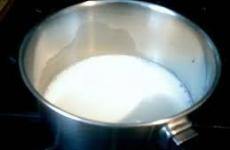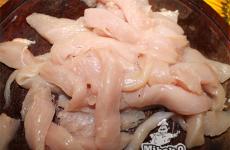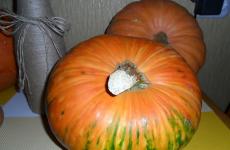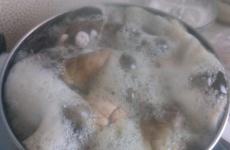How nipples change during pregnancy: features and description. why nipples are big on women why nipples are not hard
Despite the fact that it is the 21st century on the street and many issues have long been discussed openly and without hesitation, there are still some nuances that we still talk about in a whisper.
Often we turn to the Internet community for help, wanting to satisfy interest and remain incognito at the same time. Among such intimate questions, one can meet a desire to know more about why nipples stand and how this happens.
Simplicity of physiology: how does a nipple erection occur?
Each of us visually imagines the chest very well. At the same time, clearly delineating and defining: this is the male breast, and this is the female. But not everyone knows that there are many nerve endings in the chest that are located around muscle structures.
External stimuli provoke the contraction of these muscle fibers, which ultimately leads to erection of the nipples.
So, for example, speaking of physical arousal, the mechanism of "rising nipples" can be described approximately as follows:
- Touching causes irritation of nerve endings.
- In the process, a nerve impulse is formed, which is sent to the brain.
- After it is processed by the brain, there is an increase in blood flow to the mammary glands, including to the nipples.
- As a result, the nipples harden and “get up”.
If breast changes occur from cold, then the essence of rising nipples in this case comes down to spasms of muscle fibers that form goosebumps on the skin: while the muscles contract, and there is a change in shape, and sometimes even the color of the nipple, as well as the skin around it.
When is nipple erection a normal reflex?
So, you ask: is hardening of the nipples always normal? And what is the “norm” in this case, and what is the deviation from it?
The answers to these and other questions are contained in the reasons for the rising of the nipples and, oddly enough, in the frequency of repetition of such a reaction. At the same time, one should be especially attentive to the fact that the “female” reasons are somewhat different from the “male” ones.
What can cause nipples erection in women?
Causes of rising nipples in women include:
Temperature changes
Many have probably noticed that due to a decrease in air or water temperature, women's nipples become sensitive and stick out - this is a standard reaction to cold. However, this effect does not give a gradual decrease in temperature, but its sharp changes, in most cases unpleasant, uncomfortable for the female body.
sex drive
Expectation of sex, foreplay/preparation for sexual intercourse, sex itself is the most common cause of hardening of the nipples, and one of the main signs (indicator) of arousal in women, often confirming the pleasure of the process. Most often it occurs as a reaction to stroking, touching.

Pregnancy period
During pregnancy, the breast, in general, changes. Naturally, both the nipples and the areola change. Nipples may increase in size, become coarse, their sensitivity increases.
In some cases, pain is possible in the entire chest, or in separate parts, including the nipples. Do not worry about this - most often this is a normal physiological reaction to the changes taking place in the body. But, if you notice that the pain is getting worse, then you should immediately consult a doctor for diagnosis and treatment.
Premenstrual syndrome
Nipple sensitivity can be one of the symptoms of PMS. Before the start of a new menstrual cycle (on the eve of critical days), in many women, the breasts seem to swell, gain weight, they note an increase in the sensitivity of the nipples, and that they can periodically get up.
As with pregnancy, you should not rush to the hospital at the slightest change. But if the sensitivity of the nipples is accompanied by pain that remains even after menstruation, then you should not delay visiting a specialist. Remember, at the time of diagnosis will ensure timely treatment of the mammary glands.
Wrong underwear
If the size of the bra is larger than the girl needs, the nipples can rub against its inner surface, harden, coarsen and “get up”.
Spontaneous nipple erection
This happens rarely and not in all women. This reaction is not connected either with thoughts, or with feelings, and with their sensations. Usually does not last long, but at the same time it can have a recurrence during the day.
Psychological state/nervous excitement/tension
Individual characteristics nervous system sometimes they can find expression in the fact that the female breast hardens, and the nipples "get up".
What causes hardening of the nipples in men?
The reasons for the rising of male nipples can be described as follows:
Excitation
Here, the hardening of the nipples in men converges with the female reaction to sex. Sometimes the nipples can be one of the strongest erogenous zones men, although this is considered a rarity and is not found in everyone.

Puberty
Nipples can become hard due to hormonal changes. As you know, the reactions of the body of a teenager during puberty are unstable, therefore, an erection of the nipples can occur completely arbitrarily for a couple of minutes, or for a longer time.
Intoxication
When the alcohol in the blood is exceeded in men, the nipples often stick out, but the areolas decrease in size.
Temperature changes
Erection of the nipples can occur from cold: be a reaction to interaction with ice, cold water and cold things.
Diseases
In some cases, “raised” nipples in a man indicate the presence of viruses in the body or are the result of an inflammatory process in the body. During self-examination, it is necessary to pay attention to whether there are discharges from the chest, especially purulent ones.
If they are available, it is necessary to make an appointment with a doctor, and as soon as possible, without postponing the visit "on the back burner".
In what cases should you urgently visit a doctor?
Having studied the reasons for the rising of the nipples, we can say that almost all of them are normal and harmless. You should not panic, get upset or shy if your nipples get up - this is physiology. But still there are cases when it is necessary to turn close attention on your body.
We have already mentioned the discharge from the nipples above - if they are, then you should consult a doctor immediately. In addition, evidence of ill health is itching in the nipples, redness, or other changes that are noticeable during self-examination.
It is advisable to describe such deviations by contacting a specialist for help and advice.
Remember that with regard to health, it is better to play it safe and exclude the disease than to ignore a symptom that is insignificant at first glance and start the disease.
Video: what should healthy nipples look like?
So, if you have noticed that…

CHEST INCREASES
1. You are gaining weight.
After puberty, the breast grows as the whole body grows. Why is the weight growing? You can eat more, move less, sleep less, or live with stress. Plus or minus a kilogram is natural. If the weight gain is greater, the risk of getting cancer increases.
2. You are expecting your period, have started taking oral contraceptives, or are pregnant
Hormones affect breast size. If both breasts are enlarged, there is nothing to worry about.

BREAST REDUCES
3. You lose weight
Breasts are made up of fat, so if you're losing weight, they'll be the first part of your body you'll notice. If your weight and breasts are decreasing for no apparent reason, you should see a doctor. After all, it could be hyperthyroidism or another disease.
4. New menstrual cycle
If the breast increases before menstruation, it means that after it the swelling will go away and it will decrease. There are no reasons for concern.

ONE BREAST IS BIGGER THAN THE OTHER
5. Nothing special
The breasts are not symmetrical, so if they have always had a different size and shape, everything is fine.
6. Breast Cancer
If the shape of one breast changes, it's time to get tested for breast cancer.

IRRITATION ON THE SKIN UNDER THE BREAST
7. Allergy
This happens when the underwire of the bra is made of nickel, the soap did not wash off after bathing, or you wore a sweater that irritates the skin. Hydrocortisone ointment will help you. If the irritation has not gone away after a few days, see your doctor.
8. Intertriginous dermatitis
Or mischief. Very often in the summer the skin under the breast is rubbed and inflamed. Antibiotic ointment, steroids or hydrocortisone will relieve you of irritation, and the right bra will support your breasts and prevent recurrence.
9. Linen is already stale
Infrequent washing does preserve clothes, but bacteria or fungi can settle in it. The skin under the breast sweats a lot and it is very good for them.

YOU HAVE VISIBLE STRETCHES
10. Your weight fluctuates
When the weight jumps, the chest increases and decreases. This causes stretch marks. This often happens after pregnancy and in women with thin, inelastic skin.

VERY DARK OR LIGHT nipples
11. Nothing special
No, it's not cancer. Every woman's nipples are colored differently. The main thing is to be symmetrical.

VERY LARGE OR SMALL NIPPLES
12. Nothing special
Our bodies are just different. If they are symmetrical, there is no problem.

BUCKLES ON THE AREOLS
13. Nothing special
The breast is for feeding babies. These tubercles are the outlets of the milk ducts. Sometimes they increase a little, so if the nipple is surrounded by small bumps, you are fine.

ONE LARGE BUMP ON AREOLA
14. Benign cyst or malignant neoplasm
Get tested as soon as possible to see if there is any cause for concern.

HAIR AROUND THE NIPPLE
15. Polycystic ovaries
If you have started to grow hairs around the nipple, testosterone levels may have risen due to PCOS. Other symptoms are acne and irregular periods. Polycystic can lead to infertility, so you need to see a doctor.

NIPPLES ITCHING
16. Shampoo or soap residue irritates the skin
Rinse the skin with water and lubricate with hydrocortisone ointment.
17. Clothes allergy
This may be a reaction to the dye of a new bra or a wool sweater. Lubricate the nipples with hydrocortisone ointment and change clothes.
18. A new cycle will start soon
Sometimes hormonal changes cause itching.
19. Paget's disease
Or breast nipple cancer is a very rare disease. Its symptoms are itchy nipples and areolas, scaly skin, a flattened nipple, and yellow or bloody issues from the nipple. Urgently to the doctor.

PAIN AND BURNS IN THE CHEST
20. A new cycle will start soon
Depending on the phase of the cycle, the structure and sensitivity of the breast may change. you to the doctor. One consolation, if you have bumps, but there is no pain, then most likely it is not a tumor.
21. Too Much Caffeine
For some people, caffeine causes chest pain, so just start drinking less coffee, tea, and soda and the problem will go away.

WHITE CLUDY DISCHARGE FROM NIPPLES
22. Something stimulates milk production
Breasts are needed to feed babies. If the discharge looks like milk, something seems to be stimulating milk production, even if you are not pregnant or nursing a small child. The doctor will prescribe medicine for you.
23. Side effect antidepressants or antipsychotics
Some medications increase levels of prolactin, a hormone that stimulates milk production. In most cases, this is done safely, although unpleasantly.
OTHER DISCHARGE FROM THE NIPPLE
24. Benign neoplasm
Known as papilloma. you to the doctor.

NIPPLES HARD
25. You are horny
If the nipples are symmetrical but hard, there is nothing to worry about. The muscles around the nipple just contracted. It usually has to do with sex.
26. You are cold
If it's not about sex, then the simplest explanation is cold. Just warm up.

INTRACTION OR NUTS IN THE NIPLE OR BREAST
27. Breast Cancer
Any dents can be a sign of cancer. You need to see a doctor ASAP.

SEALING IN THE BREAST
28. Everything is fine with you
Now it's just another phase of the cycle, when the breasts become denser. This is fine. Breast lumps, which could mean something serious, can only be detected with a mammogram.
VEINS VISIBLE THROUGH THE SKIN
29. Risk of skin cancer
Light skin is usually pale and translucent. If so, then you are at high risk. sunburn, but as long as you do not abuse the tan and use sunscreen, serious problems will not.

BREASTS LIKE ORANGE
30. Breast Cancer
If smooth breasts suddenly become uneven like orange peels, and halos and nipples become hard, it may be cancer. You need to see a doctor ASAP.

Bump on chest
31. Benign cyst
If it is round and smooth and can be moved, it may be a benign fluid-filled cyst. It's not a tumor. you to the doctor.
32. Breast Cancer
Most often, pain and neoplasms in the chest are the result of hormones. Every time you encounter them, the question arises: is it cancer or can it become cancer? Only a doctor can answer.
The nipple is a very delicate part of the female body. It often happens that the nipples are sensitive or even painful. Pain in this area can vary from discomfort and tingling to a sharp cutting or stabbing pain that can move to the area of the shoulder blade or shoulder joint. Many girls wonder why sensitive nipples and with what it can be connected?
Common Causes
There can be several reasons for the development of pathologies. Some can be easily cured, while others require urgent surgical intervention. It is necessary to find out if very sensitive nipples are a temporary phenomenon or a manifestation of a serious illness. On average, about 15 hormones affect the breasts of any woman. The fact that the nipples become sensitive proves this process. Change in the sensitivity of this delicate part of the body in different periods A woman's life can depend on several factors.

Cause: menstruation
Very often, girls and women are faced with the fact that the nipples have become sensitive and the breasts are noticeably larger before the onset of menstruation. This process directly depends on the restructuring hormonal background among representatives of the female half of humanity in given period. The second part of the menstrual cycle means more progesterone production. This hormone is directly involved in the development of the inner lining of the uterus and stimulates the formation of glandular tissue directly in the mammary gland. Its maximum effect on the chest occurs on the 6-8th day of the second part of the menstrual cycle. Due to the work of progesterone, the breasts become larger, and the nipples will be much more sensitive. Often girls at such moments wear bras that have special softening components, although usually they did not need any special devices. This phenomenon in gynecological practice is called PMS. According to foreign scientists, this process occurs in 80% of girls during the menstrual cycle.
Very often, young girls confuse PMS with the onset of pregnancy, but all signs subside as soon as ovulation begins to approach. The nipples are sensitive, they return to their original norm, no longer bringing such discomfort to their owner. Premenstrual syndrome- a complex system clinical manifestations developing in the luteal phase female cycle. The mechanism of this phenomenon is poorly understood. Its development depends on the activity of biologically active substances on the woman's body.

Reason for ovulation
The nipples are often sensitive even when ovulation approaches. During this period, the natural process of the release of the egg from the ovary takes place. Ovulation is also due to the work of hormones, in particular estrogen. Under its influence, an increase in the follicle is recorded, and the endometrium is attracted to the egg. As the cycle progresses, the work of estrogen subsides, and luteinizing hormone takes its place. It causes the rupture of the emerging follicle and the release of the egg. In this case, the chest becomes tense, and the nipples are sensitive.

Pregnancy as a cause of sensitivity
One of the first manifestations of the fact that a girl will soon become a mother is excessive sensitivity of the nipples. The development of such discomfort often infuriates women, causing not only discomfort, but also real rage. In this case, it is recommended to change a beautiful bra to the softest and most comfortable one. Some doctors recommend putting pieces of dense tissue inside the bust, this technique will help the girl prepare for the process of feeding the baby and reduce the sensitivity of tense nipples.

Causes of sensitivity in expectant mothers
Girls, being in an interesting position, not yet suspecting pregnancy, wonder why the nipples became sensitive. A similar effect is attributed to natural phenomena that create certain conditions for the birth of offspring. The thing is that the nipples become sensitive to protect the breast from unnecessary stimulation. Stimulation can cause uterine contractions and cause miscarriage. Scientists have also proven that such sensitivity is associated with changes in the female body and the preparation of the expectant mother for the process of feeding her baby. Even in the first months of pregnancy, expectant mothers feel that the mammary gland has become larger, denser, and touching it causes pain. Such processes occur due to the active work of the hormone prolactin. It will not work to avoid pain, because this is a natural process that does not require treatment. You can only ease the discomfort by using the most comfortable underwear.

Pain while feeding
After the baby is born, pain and tenderness in the nipples may also develop. Pain in the nipple area can develop due to the appearance of cracks or abrasions. Such manifestations are characteristic of improper feeding of the child or violations in the care of the breast by a nursing mother. Often, incorrect or improper feeding causes the baby to refuse to breastfeed, which can have a very bad effect on his health. Pharmaceutical companies now offer many breast care products while breastfeeding, but before using them, you should consult a medical specialist.

Diseases that cause sensitivity
Hypersensitivity and pain can develop with the following lesions:
- Mastitis. An infectious disease in which the mammary gland is hyperemic, painful, of a dense consistency. Touch causes pain. For treatment, conservative and surgical methods are used.
- Candidiasis. Fungal infection, in which the nipples hurt and itch. The nipples swell, blisters and cracks appear on the surface of the skin. If the disease is not treated, it can be transmitted to the child during feeding.
- Laktostasis. Illness caused by constipation breast milk. To prevent the development of the disease, you need to put the baby to the breast more often.
Other causes of pain
- Injuries. The skin in the chest area is very soft and delicate and prone to injury. Any crack, bruise or bite will cause unpleasant pain, and besides, it can become infected. For minor injuries, healing agents help well; for inflammatory processes, it is necessary to consult a doctor for treatment.
- Transferred operations. When undergoing operations in the chest area, for example, its correction, the appearance of soreness is a common occurrence. If there is an accumulation of fluid or inflammation develops, an urgent consultation with a doctor is necessary.
- Allergic reactions. The reasons for their development may be clothes or poorly washed laundry detergents. To relieve symptoms, it is necessary to change hygiene items and take antihistamines.
The reason for the appearance of nipple sensitivity can be any. If there is even a slight suspicion of the development of a pathological process, you should consult a doctor.
The female body is very mysterious and includes many processes that are directly dependent on the hormonal background. This also affects the sensitivity of the nipples. But what else can cause their increased susceptibility, what are the causes of this phenomenon and whether it is associated with pathologies.
What is nipple sensitivity
Nipples are permeated with various receptors and endings that respond to touch and all kinds of stimuli. Most women may not feel anything when they are lightly stroked, but for some, any contact with external factors provokes a reaction. What can it depend on and why do the nipples suddenly become overly sensitive? Reasons why this might happen:
- During PMS.
- During the period itself.
- Pregnancy.
- During breastfeeding.
It is then that the mammary glands and nipples begin to swell due to the excess rush of blood plasma. That is why the sensitivity of the nipples and breasts increases.
Pregnancy
Sensitive nipples are common during pregnancy. Statistics claim that 80% of the manifestation of excessive susceptibility of this zone in women occurs even at very early dates, as the hormonal background begins to experience tremendous changes. They become such in order to protect the reproductive organ from interrupting the development of the child, since oxytocin is produced when the breast is stimulated. This hormone is responsible for uterine contractions. When this area becomes sensitive and it hurts to touch the nipples, the woman should avoid stimulation of the mammary glands, which favorably affects the course of pregnancy, especially when she is in the early stages.
Naturally, it will not be possible to avoid such changes, so this discomfort will have to be endured. To alleviate this factor, you can change the bra, which will fit the existing breast size, and be made from natural fabrics.
 The susceptibility of the nipples is increased due to the breastfeeding of the child. At this moment, they not only react to touch, but also hurt a lot. The reasons for this are the incorrect position of the child or mother, simultaneous bottle feeding and breastfeeding forms improper sucking. Also, pain can occur due to untimely replacement of the chest lining. This increases the moisture of the skin on the nipples, from which they become unnecessarily soft. Pain can be provoked by the inept termination of the feeding process and the separation of the child from the mother's breast.
The susceptibility of the nipples is increased due to the breastfeeding of the child. At this moment, they not only react to touch, but also hurt a lot. The reasons for this are the incorrect position of the child or mother, simultaneous bottle feeding and breastfeeding forms improper sucking. Also, pain can occur due to untimely replacement of the chest lining. This increases the moisture of the skin on the nipples, from which they become unnecessarily soft. Pain can be provoked by the inept termination of the feeding process and the separation of the child from the mother's breast.
These symptoms can cause dry, sore, or irritated nipples. Also, do not forget about uncomfortable underwear. At the time of breastfeeding, it is better to give preference natural materials that were used during pregnancy.
PMS
Women's nipples become very sensitive before menstruation. Why is this happening? In the second phase of the cycle, when ovulation has already passed, progesterone begins to be actively produced. Such a hormone allows the endometrium to thicken to the required thickness and save the fetus. This substance reaches its peak 7 days after the start of the second phase. Then women begin to notice that the nipples have become much more sensitive, and the breasts have increased slightly. Such reasons are often confused with the symptoms of pregnancy, but over time everything falls into place.
Ovulation
If the nipples suddenly become sensitive, then this may indicate the onset of ovulation, when the egg leaves the ovary. The reasons lie also in hormones. In the first phases, the presence of estrogen dominates more. It allows the follicle to grow, and affects the endometrium. At such a time, the female breast is the softest and most relaxed, and when the middle of the cycle is approaching, the body feels the beginning of reshaping. A latinizing hormone is released, which affects the rupture of the follicle and the rejection of the egg. At the same time, this substance affects the woman's breasts. That is why she becomes more aroused and her nipples and areolas are very receptive.
Important! This factor occurs only in the middle of the cycle, so it cannot be confused with pregnancy or PMS.
The presence of pathologies
 The sensitivity of the nipples increases if there are some pathological processes in the female body. Often this symptom occurs when the patient suffers from hormonal ailments:
The sensitivity of the nipples increases if there are some pathological processes in the female body. Often this symptom occurs when the patient suffers from hormonal ailments:
- Myoma of the uterus.
- Polycystic etc.
Also, the fact that the nipples have become more susceptible can be affected by the presence of neoplasms in the mammary glands. Along with this, there is an increase or deformation of the shape of the breast, and painful sensations do not give rest for a long period and each time become more acute.
Mastopathy and other diseases of the mammary glands can cause sensitivity in this area. Such pathologies do not pose a particular threat to the health and life of a woman, but require immediate specialized intervention. Since without adequate timely treatment, they can develop into tumors or acquire other complicated forms.
Individual predispositions
The sensitivity of the nipples can be explained by the individual characteristics of the human body and the skin. Causes of manifestation occur during puberty and are present on an ongoing basis. It is worth noting that there are very few such women, but at the same time they work and live normally, since the susceptibility of this area does not bring them discomfort.
Conclusion
When pain and sensitivity last for a long time, it is necessary to consult a specialist and undergo diagnostic manipulations in order to exclude the presence of diseases. If this is due to hormones, then the doctor will prescribe medications and a special diet. Also, one should not forget about the psychological aspect: negative emotions, stressful situations, conflicts that arise in an intimate way, etc.
If there is a need to take oral contraceptives, then before using them, you need to consult a doctor who will advise the appropriate drug. You should also take good care of skin breasts and nipples, using hypoallergenic products and gels for intimate hygiene.
Most women sooner or later face such an unpleasant problem as very sensitive nipples. Unlike the male female body quite strongly associated with hormones. Any hormonal surges can affect not only the emotional background, but also the physical sensations.
Causes
Hypersensitivity of the nipples is a woman's condition that has a clear cause. Most often, it does not pose a danger, but serves only as a symptom of small hormonal changes.
The female nipples are the most important organ. They are responsible for feeding future offspring and are permeated with thousands of highly sensitive receptors. Different stimuli can bring different sensations to a woman. Most often, these are mild unpleasant or, conversely, pleasant sensations. Hormonal changes cause hot flashes a large number blood to the chest and directly to the nipples, which is the reason for their increased sensitivity.

The main reasons why the sensitivity of the outer part of the mammary gland changes are as follows.
Approaching menstruation
A few days before the onset of menstruation, a woman's appetite and mood may change. One of the signs of PMS is an increase in the sensitivity of the nipples. It has to do with the hormone progesterone.
Ovulation
If a woman notices that she has a very sensitive outer part of the breast, but there are still a few weeks before her period, this indicates the onset of ovulation.

It also has to do with hormones. When the follicle prepares the egg for release, estrogen dominates the body. This hormone allows the breasts to relax and the nipples not to be so sensitive, but as soon as the follicle ruptures and the egg ready for conception comes out, ovulation begins. At this time, the whole body is rebuilt a little, including the chest. It can become more sensitive, and the areolas more defined.
Lactation
Improper breastfeeding or not following the rules when feeding is one of the reasons why nipples can not only become more sensitive, but also hurt badly.
With their high sensitivity, it is recommended to use special nozzles. They remove discomfort for the mother and facilitate sucking for the baby. The cause of severe irritability of the nipples can also be a strong influx of milk. Because of this, they begin to leak, and high humidity leads to the formation of diaper rash and cracks. To avoid this, it is necessary to use special breast pads.

Various diseases
The sensitivity of the outer part of the mammary gland may increase if certain pathologies begin to develop in the body.
Most often, these are diseases of the reproductive system and hormonal disorders. Particular attention must be paid to constantly sensitive and even painful nipples. If at the same time the breast changes (its shape is distorted and enlarged), then it is urgent to consult a doctor, since there is a high probability of a cancerous tumor.
Features of the structure of the chest
This reason for the increase in the sensitivity of the nipples is associated only with the structural features of the skin and subcutaneous tissue chest. There are quite a few such women, and discomfort in the chest appears during puberty.

Increased nipple sensitivity during pregnancy
If the nipples become sensitive, and menstruation still does not occur, then the likelihood of pregnancy is very high. Great tenderness of the breast in general is one of the first symptoms of the conception of a child.
The breast of a woman is one of the first to react to the birth of a new life in the body. This is influenced by the hormone progesterone, which is why most women notice breast enlargement and discomfort in the nipples already in the first weeks after conception.
It is the breast that reacts first to signals about the restructuring of the body for the growth and development of the baby. Namely, the mammary gland. For 9 months, she needs to carefully prepare for the future feeding of the baby. At this time, the breast begins to increase in size, literally swell.
Increased sensitivity of the nipples during pregnancy, many women confuse with the upcoming menstruation. But, during pregnancy there is a significant difference. Hormones affect not only the sensitivity of the nipples themselves, but also the areolas around them. During pregnancy, they become darker and slightly increase in size.

Increased sensitivity in the outer part of the mammary gland is also associated with prolactin. Prolactin is a special hormone whose main function is to prepare the breast for feeding and the subsequent release of milk. Due to the active work of the mammary gland, a lot of blood rushes to the chest, which provokes an increase in the sensitivity of the nipples. At the same time, colostrum, a cloudy white substance that is secreted by the mammary glands, may begin to stand out from the nipples. Under no circumstances should it be squeezed out. This can provoke not only discomfort and irritation, but also lead to severe pain.
Increased sensitivity in the outer part of the breast during pregnancy, many women describe in different ways. Someone has pain at the slightest irritation or touching the chest, someone starts itching in the areola, someone has a strong burning sensation. Each of these characteristics is normal and does not require additional measures.
In some women, the sensitivity of the outer part of the breast throughout pregnancy does not change, and may even decrease. This is also considered normal.
To reduce discomfort, you need to wear comfortable underwear made from natural fabrics and do not forget about wearing a bra every day.
Video
The video will tell you how breastfeeding mothers can avoid nipple problems when breastfeeding.






